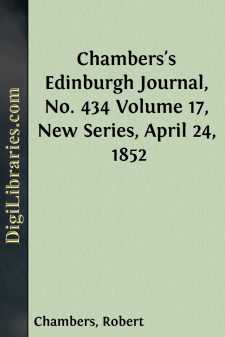Fiction
- Action & Adventure 180
- Biographical 15
- Christian 59
- Classics
- Coming of Age 5
- Contemporary Women 3
- Erotica 8
- Espionage/Intrigue 12
- Fairy Tales, Folklore & Mythology 236
- Family Life 169
- Fantasy 117
- Gay 1
- General 596
- Ghost 32
- Historical 808
- Horror 43
- Humorous 160
- Jewish 25
- Legal 4
- Medical 22
- Mystery & Detective 315
- Political 49
- Psychological 41
- Religious 64
- Romance 159
- Sagas 11
- Science Fiction 730
- Sea Stories 113
- Short Stories (single author) 537
- Sports 10
- Suspense 1
- Technological 8
- Thrillers 2
- Urban Life 31
- Visionary & Metaphysical 1
- War & Military 173
- Westerns 199
Classics Books
Sort by:
by:
Angela Brazil
The New School "Katrine!" said Gwethyn, in her most impressive manner, "have you noticed anything peculiar going on in this house the last two or three days?" "Why, no," replied Katrine abstractedly, taking a fresh squeeze of cobalt blue, and mixing it carefully with the rose madder and the yellow ochre already on her palette. "Nothing at all unusual. Gwethyn, be careful!...
more...
CHAPTER I Humdrum isn’t where you live; it’s what you are. Perhaps you are one of those whose lives are bound by neighbourly interests. Imaginatively, you never seek what lies under a gorgeous sunset; you are never stirred by any longing to investigate the ends of rainbows. You are more concerned by what your neighbour does every day than by what he might do if he were suddenly spun, whirled,...
more...
by:
Leland Powers
CHAPTER I. MIND ACTIVITIES DOMINATED BY A CONSCIOUSNESS OF Power, Largeness, Freedom, Animation, Movement. 1. "Ho! strike the flag-Staff deep, Sir Knight--ho! scatter flowers, fairmaids:Ho! gunners, fire a loud salute--ho! gallants, draw your blades." 2. "Awake, Sir King, the gates unspar!Rise up and ride both fast and far!The sea flows over bolt and bar." 3. "I would call upon all...
more...
CHAPTER I. EARLY LIFE AND CALL TO THE MINISTRY, 1505-1547. On the sixteenth day of January, 1546, George Wishart delivered a remarkable sermon in the church of Haddington. Two things had combined to produce special depression in his heart. Shortly before he entered the pulpit a boy had put into his hands a letter informing him that his friends in Kyle would not be able to keep an appointment which they...
more...
Kansas was one of the first states for which a detailed book on birds was published (N. S. Goss, "History of the Birds of Kansas," Topeka, Kansas, 1891). Ornithological progress in Kansas in recent years, however, has not kept pace with work in many other states. As a result, knowledge of the birds of Kansas today is not sufficiently detailed to make possible a modern, definitive report. One...
more...
CHAPTER I THE DILIGENCE James Therne is not my real name, for why should I publish it to the world? A year or two ago it was famous—or infamous—enough, but in that time many things have happened. There has been a war, a continental revolution, two scandals of world-wide celebrity, one moral and the other financial, and, to come to events that interest me particularly as a doctor, an epidemic of...
more...
by:
Shinran
It is a singular fact that though many of the earlier Buddhist Scriptures have been translated by competent scholars, comparatively little attention has been paid to later Buddhist devotional writings, and this although the developments of Buddhism in China and Japan give them the deepest interest as reflecting the spiritual mind of those two great countries. They cannot, however, be understood without...
more...
by:
Ed Emshwiller
Tarb Morfatch had read all the information on Terrestrial customs that was available in the Times morgue before she'd left Fizbus. And all through the journey she'd studied her Brief Introduction to Terrestrial Manners and Mores avidly. Perhaps it was a bit overinspirational in spots, but it had facts in it, too. So she knew that, since the natives were non-alate, she was not to take wing on...
more...
Chapter I. It was the close Of an autumn day, and Dr. Stephen Letsom had been standing for some time at his window watching the sun go down. It faded slowly out of the western sky. There had been a golden flush with the sunset which changed into crimson, then into purple, and finally into dull gray tints that were forerunners of the shades of night. Dr. Stephen Letsom had watched it with sad, watchful...
more...
by:
Robert Chambers
PUFF AND PUSH. It is said that everything is to be had in London. There is truth enough in the observation; indeed, rather too much. The conviction that everything is to be had, whether you are in want of it or not, is forced upon you with a persistence that becomes oppressive; and you find that, owing to everything being so abundantly plentiful, there is one thing which is not to be had, do what...
more...











